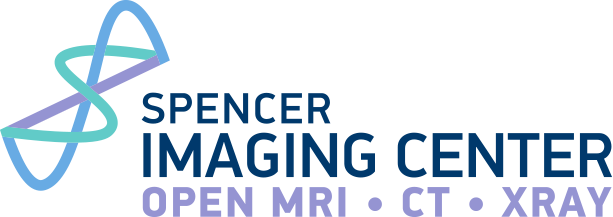MRI
Our advanced 80 cm wide-bore MRI system is the world’s first of this size and is designed to accommodate a wider range of patients, ensuring a more comfortable experience for individuals who may feel claustrophobic or who may be obese. This cutting-edge technology allows for improved accessibility and enhanced patient care, without compromising diagnostic accuracy. This system enables faster scan times, which helps to reduce patient anxiety. By decreasing the duration of the procedure, patients are less likely to feel stressed or uncomfortable, improving their overall experience. This can also lead to more efficient workflows for medical professionals, allowing them to serve more patients in less time while maintaining high-quality care.
What is an MRI?
Magnetic resonance imaging (MRI) is a medical imaging tool that uses a magnetic field to generate radio waves that create highly detailed images of the areas of your body that are being examined.
When you lie in an MRI machine, the magnetic field inside works with radio waves and hydrogen atoms in your body to create cross-sectional images — like slices in a loaf of bread which will allow a radiologist to see potential problems inside of your body.

MRI Contraindication
Because an MRI machine use powerful magnets to create images it is very important to let the facility know ahead of time if you have any implanted metal, electronic devices, or anything foreign that may be inside your body as some of these implanted items may require further information prior to an MRI or even possibly prevent you from having an MRI performed. If you do any grinding or welding an X-ray of your eyes may be required to verify there is no foreign body in them. Please inform us prior to your appointment as to not delay your exam. The following are a list of things that you need to notify us of prior to having an MRI:
- Artificial heart valves.
- An implantable heart defibrillator.
- Implanted drug infusion pumps.
- Implanted nerve stimulators.
- A pacemaker.
- Metal clips.
- Metal pins, screws, plates, stents or surgical staples.
- Cochlear implants.
- A bullet, shrapnel or any other type of metal fragment.
- Intrauterine device
If you have tattoos or permanent makeup that have been recently placed please let the MRI technologist know as that can cause potential issues as well as some of the iron based dyes.
Before you schedule an MRI, tell your doctor if you think you’re pregnant. The effects of magnetic fields on an unborn baby aren’t well understood. An alternative exam may be recommended, or the MRI may be postponed. Also tell your doctor if you’re breastfeeding, especially if you’re to receive contrast material during the procedure.
It’s also important to discuss kidney problems with your doctor and the technologist, because problems with these organs might limit the use of injected contrast agents during your MRI scan and even require some lab testing prior to an MRI.
How to prepare for my MRI
When you arrive for an MRI you will fill out some paperwork and that paperwork will be reviewed with an MRI technologist. At that point you will be escorted to a patient changing room and be given a gown to change into as well as removing any jewelry or metal on your body so it is best to have that removed before arriving for an MRI if possible. The gown is provided due to a lot of clothing contains metallic fibers that could potentially cause burning during an MRI exam.
How long will my MRI take?
The duration of an MRI (Magnetic Resonance Imaging) scan can vary depending on several factors:
- Type of Scan
- Area Being Scanned
- Need for Contrast
- Patient Factors
Generally, MRI machines are designed to be efficient, and technicians will work to minimize the scan time while still ensuring high-quality images. If you’re undergoing an MRI, the technician will usually give you a time estimate beforehand based on the specifics of your scan.
After my MRI
The MRI images are sent to a radiologist to be read and the results are generally available within 24-48 business hours and those results will be faxed to your ordering physician. The images can be sent via secure e-mail server to your physician and or yourself if needed.


